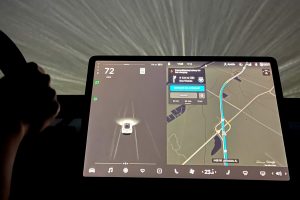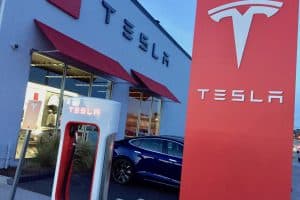In May, Tesla CEO Elon Musk said the electric automaker would likely announce its next Gigafactory location by year’s end.
While there have been rumors of deep talks in Spain, numerous meetings with French government officials, and heavy speculation regarding a relationship with Canada, Indonesia, and South Korea, it is becoming overwhelmingly clear that all signs are pointing toward India, a location where Tesla has mulled a factory for several years.
It all started back in 2015 when Indian Prime Minister Narendra Modi and Musk had their first meeting at the Fremont Factory in Northern California.
At the time, Tesla was still a young-and-scrappy car company, pushing out just thousands of units each year as it only offered the Model S and Model X at the time. Electric vehicles were still a far cry from what they are today, and while there were other options on the market, gas-powered options still dominated the overall market.
Fast-forward to 2018, when Tesla decided to open its first vehicle production factory outside of the United States in Shanghai. The Chinese EV production plant quickly became Tesla’s most effective, accumulating thousands of workers and producing a majority of the automaker’s annual volume. It went from a domestic production facility for Chinese customers to an “export hub” that would feed some of the best-selling EVs to the European market.
This all happened before Tesla would commit to building a factory near Berlin in 2019, and then another factory in Mexico in 2023.
In 2021, Tesla seemed primed to announce it would make a substantial investment in India. It had a team of executives lined up, which included David Feinstein, Tesla vet who would be named Director of Global Trade and New Markets. Vaibhav Taneja was assigned as the Chief Accounting Officer for the India plant, and Prashanth R. Menon assumed the role of Director of Tesla India.
The team was even rounded out with Manuj Khurana for Policy and Development, Nishant Nishant for Charging Infrastructure, and Chithra Thomas for Human Resources. Samir Jain was set to take over India’s Service Operations for Tesla after seven years at Porsche, where he headed Aftersales for the German automaker’s operations in India.
However, the team Tesla would put together for India would never get to work in the market, as it was set to establish the plant there.
Tesla had certain demands it needed to fulfill before committing to a Gigafactory there, and India had certain demands it needed to fulfill before giving Tesla what it wanted.
India has some of the highest import duties on vehicles in the world. The taxes would double the price of any car priced over $40,000 and 60 percent to any car under that threshold. Because of this, Tesla requested import duties be reduced to 40 percent, which would help the company determine if demand for its cars was high enough to move forward.
However, Indian officials were reluctant to oblige to Tesla’s demands, arguing that “company-specific” duty rollbacks would not be possible.
The government has made its stance against company-specific incentives clear,” government officials from India said. “This also applies for one particular company requesting industrywide changes to existing policy. Over the past four years, multiple demands were made by a large US-based firm to open up the market at lower import duties as well. Now, they locally produce in India and are ramping up capacity.”
India has a $27B manufacturing initiative called “Make In India,” which encourages companies from all corners of the globe to develop, produce, and assemble products in India with sizeable investments. This initiative was first introduced in 2014 by Modi.
Because Tesla would be importing vehicles from other countries, most likely China, into India’s marketplace, government officials were unfavorable of the idea of rolling back duties. However, they were willing to do so, only if Tesla would commit to building the factory in the first place, which completely eliminated the purpose of testing demand in the first place.
Two years later, it appears Tesla and India have come to some kind of agreement. Although the terms of a partnership or investment are unknown currently, both Modi and Musk have put forth statements that seem to indicate Tesla’s next factory will be in India.
“I am confident Tesla will be in India, and we’ll do so as soon as humanly possible,” Musk said. “Hopefully, we’ll be able to announce something in the not-too-distant future.”
We don’t want to jump the gun on an announcement,” he added, “but it’s quite likely that there will be a significant investment and relationship in the future.”
Modi also posted his own photo with Musk on his Twitter account, thanking the Tesla CEO for a “great meeting.”
Because of the widespread speculation regarding Tesla’s next factory, we can all speculate on where it will end up. But if there is any indication of what the automaker wants and what the government wants, the long-standing attempts to get a deal done may indicate Tesla is most likely to end up in India.





